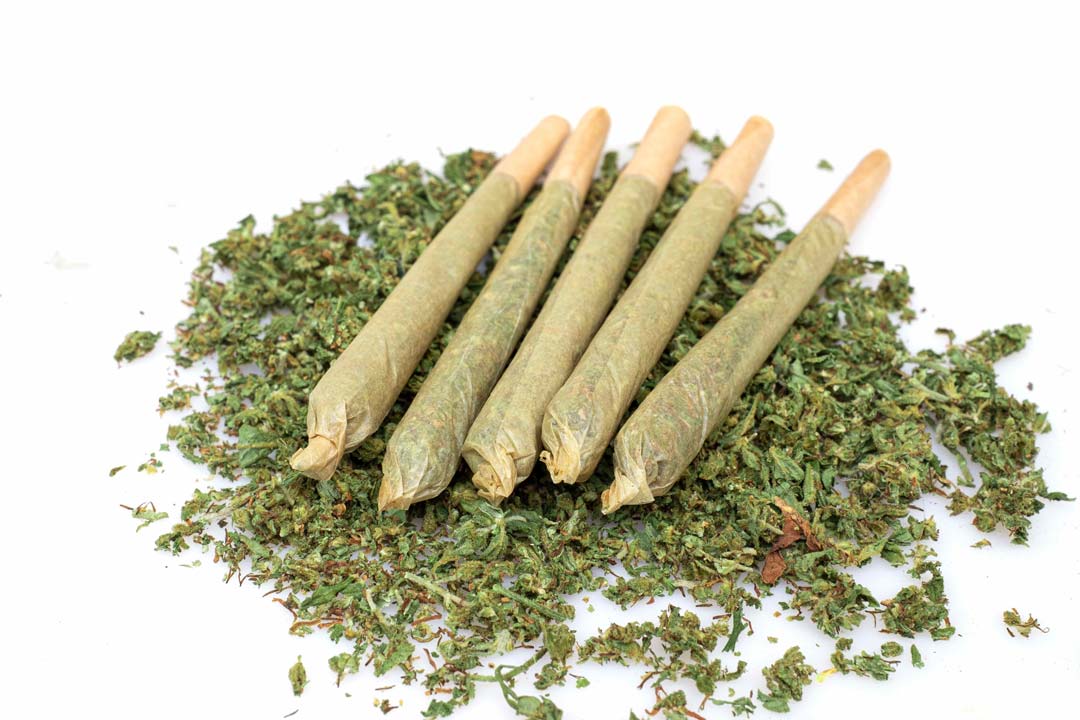Rolling up a joint or blunt might be your go-to relaxation
ritual, but have you ever wondered about the potential consequences on your
lungs? Tobacco wraps have long been the norm, but now hemp wraps are gaining
traction as a seemingly "healthier" alternative. But healthier
doesn't always mean harmless, right?
If you've found yourself pondering the differences between
hemp wraps and traditional tobacco wraps, particularly their impact on your
precious lung health, you're not alone. Many folks are curious about this very
thing. After all, who wouldn't want to enjoy their favorite pastime without the
nagging worry of long-term damage?
This article will explore what hep wrap is made of, how they
stack up against tobacco wraps, and what the research—or lack thereof—says
about their effect on your lungs. By the end of this journey, you'll be armed
with the knowledge you need to make an informed decision about whether they are
a wise choice for you.
Understanding Hemp Wraps
At their core, hemp wraps are just thin sheets made
primarily from hemp fibers, water, and sometimes other natural ingredients.
These sheets are used to roll up your choice of herbs, much like you would with
a traditional tobacco wrap. You might be wondering, "What makes hemp wraps
different?" Well, the key difference lies in the absence of tobacco.
Tobacco contains nicotine, a highly addictive substance that
poses significant health risks. Hemp, on the other hand, is naturally
nicotine-free. This makes hemp wraps an appealing option for those looking to
avoid nicotine while still enjoying their preferred rolling method. Hemp wraps come in a variety of flavors, often derived from natural sources like
fruits and herbs. So, you can indulge your taste buds while skipping the
tobacco
Benefits and Risks
Hemp wraps are tobacco and nicotine-free, which sounds
pretty darn good. But before you toss your tobacco wraps and jump on the hemp
bandwagon, consider both the potential benefits and risks.
Besides being tobacco and nicotine-free, hemp wraps often
contain fewer additives compared to their tobacco counterparts. This is a major plus for folks concerned about inhaling extra
chemicals. Plus, as mentioned earlier, they come in a wide array of tasty
flavors without the artificial aftertaste that some tobacco wraps leave behind.
But it's not all sunshine and rainbows. Hemp wraps are still
combustible, meaning they produce smoke when burned. And inhaling smoke,
regardless of its source, exposes your lungs to irritants and potentially
harmful substances. Even though hemp wraps might be a less harmful alternative
to tobacco wraps, they're certainly not risk-free.
The research on hemp wraps and their long-term effects on
lung health is still pretty limited. There's not enough solid evidence to
definitively say whether they're a healthier choice in the long run. So, while
the idea of fewer additives and no nicotine is tempting, it's crucial to
approach hemp wraps with a balanced perspective and acknowledge the potential
risks involved.
Impact on Lung Health
How do hemp wraps actually affect your lungs? Smoking, in
general, isn't exactly a health spa treatment for your respiratory system. It
doesn't matter if it's tobacco, hemp, or even organic kale – inhaling smoke
exposes your lungs to irritants and potentially harmful substances. These
irritants can cause inflammation and damage to delicate lung tissue over time.
Now, you might be thinking, "But hemp wraps don't have
nicotine, so they must be safer, right?" While it's true that nicotine is
a major culprit in tobacco-related lung damage, it's not the only one. The combustion process itself,
regardless of the material being burned, creates various toxins and
carcinogens. So, even though hemp wraps might be a less harmful alternative to
tobacco wraps, it's important to remember that they're not entirely harmless.
The truth is more research is needed to fully understand the
long-term effects of hemp wrap smoke on lungs. Some studies suggest that hemp
smoke might be less irritating than tobacco smoke, but the evidence is far from
conclusive. In the meantime, it's wise to err on the side of caution and use
hemp wraps sparingly, if at all.

Harm Reduction Strategies
Here's the lowdown on harm reduction strategies if you
choose to use hemp wraps:
Choose wisely
Look for reputable brands that provide a transparent list of
ingredients. Avoid those with added artificial flavors or chemicals. It's worth
spending a few extra bucks on quality wraps that prioritize natural
ingredients.
Moderation is key
Try to limit your use to special occasions or social
settings rather than making it a daily habit. Remember, less smoke is always
better for your lungs.
Explore alternatives
Vaporizers are a popular option that heats the herbs without
burning them, producing vapor instead of smoke. Edibles and tinctures are also
alternative methods that bypass the lungs entirely. It's worth experimenting to
see what works best for you.
Keep your lungs happy
Beyond hemp wraps, there are plenty of things you can do to
show your lungs some love. Exercise regularly, eat a healthy diet, and avoid
exposure to environmental pollutants as much as possible.
If you're unsure about anything, don't hesitate to chat with
your doctor or a healthcare professional. They can provide personalized advice
based on your individual needs and medical history.
Final Thoughts
Your lungs are precious, so treat them with care. Whether
you stick with hemp wraps, explore alternatives, or kick the habit altogether,
prioritize your respiratory health and make choices that align with your
well-being.


